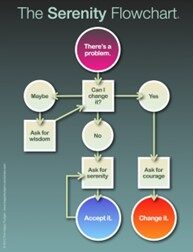
25 Oct Finding Peace and Strength After Tragedy and Loss
Finding Peace and Strength After Tragedy and Loss
In recent months, many have experienced profound challenges and loss as Hurricanes Helene and Milton have left communities devastated, displacing families and disrupting lives. Even if you were not impacted directly, watching tragedies like these unfold can have a profound impact on our mental health and wellbeing. These events, coupled with other personal and global crises, underscore the need for resilience in the face of hardship. During such times, seeking support from others and using tools that promote healing can help navigate the path forward with grace.
The Power of Equanimity in Difficult Times
Equanimity, a concept from Buddhist philosophy, encourages acceptance of life’s impermanence and helps manage emotional extremes. This perspective is especially helpful in times of trauma allowing individuals to balance difficult emotions and cultivate healthier relationships with themselves and others. Practicing equanimity isn’t about dismissing pain; it’s about acknowledging it while remembering that, like all things, these moments will also pass.
When facing calamities such as natural disasters, maintaining equanimity helps individuals remain grounded, supporting intentional action instead of being swept away by emotional reactions. While external events may be uncontrollable, responses rooted in equanimity offer a way to navigate such challenges more peacefully.
The Serenity Flow Chart: A Path to Acceptance

A practical tool for fostering equanimity is the serenity flow chart, which focuses on the essential question: If I can’t change it, how do I work on accepting it? This framework encourages people to direct their energy toward what they can control while seeking peace with what they cannot. In the aftermath of events like Hurricanes Helene and Milton, where certain impacts are irreversible, the serenity flow chart can provide a structured approach to finding acceptance, helping individuals find calm in uncontrollable situations.
Coping Strategies for Healing and Growth
In addition to equanimity, grounding practices offer ways to cope with trauma and loss, providing a sense of stability even amidst difficult times. These strategies encourage peace, resilience, and small moments of joy:
- Prayer or Reflection: Seeking comfort and guidance from a higher power can provide strength.
- Journaling: Recording thoughts and emotions helps process trauma.
- Movement: Physical activities such as walking, yoga, or gentle exercise can relieve stress and aid healing.
- Mindfulness Meditation: Moments of stillness foster inner calm and clarity.
- Finding Joy: Engaging in meaningful activities like cooking, gardening, or spending time in nature can help anchor people amid turmoil.
While each person’s healing journey is different, these practices can help create grounding moments that uplift even during times of grief and stress.
Recognizing Symptoms of Trauma and Loss
It’s also important to recognize the physical and emotional symptoms that often accompany trauma, such as fatigue, headaches, digestive issues, sadness, irritability, numbness, or anxiety. Awareness of these signs allows individuals to respond with self-compassion, providing necessary space for healing. In the aftermath of tragedies, such as Hurricanes Helene and Milton, these symptoms are common and expected, underscoring the need for patience and understanding toward oneself.
Moving Forward with Resilience and Compassion
Recovery is a gradual journey, one that benefits from community support and compassionate tools like equanimity. Although healing takes time, by supporting one another, practicing resilience, and integrating coping strategies, it’s possible to emerge stronger. Remembering that healing is ongoing, we can face future challenges with courage and hope, embracing each step forward with grace.
In honoring the path toward recovery, each moment of resilience builds a foundation for healing, supporting both personal and collective growth. Together, we can find strength, peace, and purpose even in the most challenging of times.

No Comments